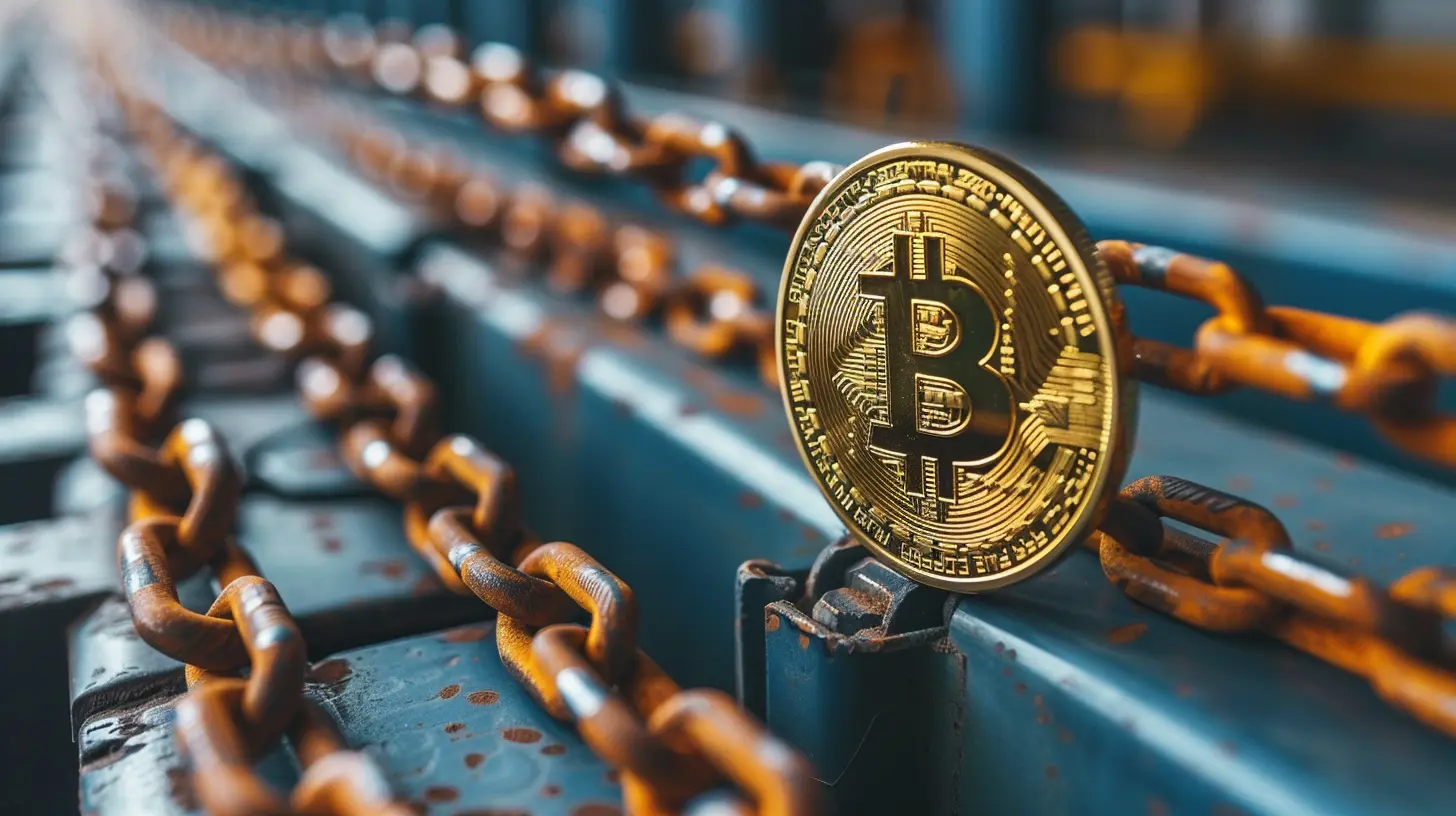The Growing Influence of Blockchain in Global Trade
1 September 2025
Hey, you’ve probably heard the term “blockchain” tossed around like confetti at a tech parade. But it’s not just some buzzword anymore—it’s changing the game, especially in global trade. And no, we’re not just talking about crypto bros and Bitcoin millionaires. We’re diving deep into how this revolutionary tech is transforming the way countries and companies do business across borders.
So, buckle up. This isn’t just another tech trend—it’s a full-blown shift in how the world moves goods, money, and trust.
🚢 What’s the Big Deal About Blockchain in Global Trade?
Okay, quick refresher—what exactly is blockchain? At its core, it’s a decentralized digital ledger that records transactions in a secure, transparent, and unchangeable way. Think of it like Google Docs, but for secure transactions, where everyone involved can see the updates in real-time—but no one can change the past entries.Now, apply that to global trade, where trillions of dollars worth of goods are shipped, tracked, taxed, and sometimes lost or delayed. Suddenly, blockchain becomes the superhero logistics didn’t know it needed.
📦 Why Is Global Trade So Messed Up?
Let’s be real: global trade has been a hot mess for decades.- Mountains of paperwork cause insane delays
- Multiple intermediaries inflate costs
- Limited transparency leads to fraud
- Tracking is like playing "Where’s Waldo" with shipping containers
Sound familiar? If you’ve ever tried to order something from overseas only to have it stuck in customs limbo, you know the pain.
Blockchain steps in and says: hold my beer.
🔗 Enter Blockchain: The Trust Machine
Imagine a single, tamper-proof record of every transaction, visible to all parties. No more “he said, she said” in international trade deals.Let’s break this down with a few standout perks:
✅ Trust Without Middlemen
Typically, international deals need banks, clearinghouses, brokers—you name it. Each one slices a bit of the pie. Blockchain replaces all of this with smart contracts—self-executing agreements coded into the blockchain. That means once conditions are met, the contract runs automatically. No delays, no extra fees, no funny business.🔍 Total Transparency
Every transaction is logged and everyone involved can see the chain of custody. From the factory in China to the port in Rotterdam, you know exactly where your product is and who handled it. It's like a Fitbit for your freight.🔐 Enhanced Security
Because the data on blockchain is decentralized and encrypted, it’s nearly impossible to hack or alter. You can't just sneak in and change a record. It's locked tighter than a bank vault with a laser system.
🌍 Real-World Blockchain Use in Trade (Yeah, It’s Already Happening)
Let’s drop the theory for a second—who's actually doing this?🛳️ Maersk + IBM = TradeLens
Maersk, the global shipping giant, and IBM teamed up to create TradeLens, a blockchain-based shipping platform. They've been digitizing the entire supply chain. As of now, TradeLens has been adopted by ports, customs agencies, and shipping operators worldwide. Results? Faster processing, reduced fraud, and fewer delays.🛢️ Oil & Gas: VAKT Platform
In the energy sector, companies like Shell and BP joined forces to launch VAKT, a blockchain platform for post-trade processing of commodities. It cuts down on the back-and-forth paperwork, enables real-time communication, and prevents data duplication.🍫 Tracking Cocoa with Provenance
Even niche industries are getting in on the action. Chocolate makers now use blockchain to track cocoa from bean to bar, ensuring ethical sourcing and eliminating child labor. That’s both cool and conscience-clearing.💥 The Impact: What’s Changing in Global Trade?
You better believe that blockchain isn’t just flipping the industry—it’s flipping it upside down. Here's what it's transforming:💸 Cost Efficiency
No more unnecessary intermediaries taking a cut. Blockchain slashes transaction costs big time—especially in cross-border payments and settlements.🕒 Speed & Efficiency
Manual verification? Delays at customs? Blockchain automates and verifies everything in seconds. That means goods flow faster, companies save time, and customers stop raging over "delayed shipment" emails.💼 Business Confidence
With real-time data, businesses can make smarter decisions. No more decisions based on outdated spreadsheets and mystery logistics. They know what’s happening, when, and why.🤯 The Game-Changer: Smart Contracts
Let me drive this home: smart contracts are where blockchain’s magic really happens in trade.Imagine buying 1000 barrels of oil. With a smart contract, the moment the shipment is confirmed as delivered, payment is automatically triggered. No human interaction required. No room for dispute. Just instant execution.
This level of automation and trust is unheard of in traditional trade systems. It’s like switching from snail mail to email—times a thousand.
📉 So... What’s Holding Blockchain Back?
Okay, time for some real talk. It’s not all rainbows and unicorns. Blockchain has some hurdles to clear before it takes over global trade.🧱 Legacy Systems
Most global trade systems are like that one uncle still using AOL dial-up. Old, clunky, and allergic to change. Integrating blockchain means overhauling massive infrastructures—no small feat.🧑⚖️ Regulation Wild West
We’re still waiting on clear global standards. Some countries love blockchain. Others eye it like it’s black magic. Without global regulatory alignment, adoption is slow.🧠 Lack of Know-How
Let’s face it—blockchain can be confusing. Many logistics and trade professionals still don’t fully grasp how it works, let alone implement it.But hey, every great tech had growing pains. Remember the internet in the ‘90s?
🧭 What’s Next? The Future of Blockchain in Trade
Here’s the fun part. Despite the hurdles, the future looks bright. Here's what we can expect:🌐 Global Standards Will Emerge
Governments, tech firms, and trade organizations are already working on standardizing blockchain protocols. Once that happens, adoption will explode.🧮 AI + Blockchain = Mind-Blowing Efficiency
Picture this: AI predicting delays or customs issues while blockchain securely updates every stakeholder in real-time. That’s not sci-fi—that’s 2025. Maybe even sooner.🤝 More Collaboration, Less Isolation
We’ll see more consortiums like TradeLens driving collaboration between ports, customs, and shippers. Blockchain thrives on shared data—and trade is all about sharing (even if no one likes to).👊 Final Thoughts: Trade Will Never Be the Same
Let’s not sugarcoat it—global trade needed a serious facelift. And blockchain? It's the digital Botox injecting transparency, speed, and trust into a system that’s been wrinkled by inefficiencies for too long.Sure, it's not perfect. But the momentum is real. Countries are waking up. Companies are investing millions. The traditional gatekeepers of global trade are scrambling to adapt.
So next time someone says blockchain is just for crypto, you can laugh politely and tell them it’s actually revolutionizing the way we move goods, manage trust, and build global commerce.
Who knew digital ledgers could be this badass?
all images in this post were generated using AI tools
Category:
Business TrendsAuthor:

Caden Robinson
Discussion
rate this article
1 comments
Rune Kim
Blockchain in trade? Finally, a way to track my lost socks!
September 17, 2025 at 4:03 AM

Caden Robinson
Absolutely! Blockchain's transparency could revolutionize tracking not just in trade but even for lost socks!


